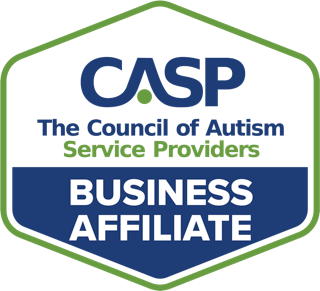If you have dedicated your life and your career to providing your community with specialized ABA (Applied Behavioral Analysis) therapy services, you might consider taking your commitment to the next level.
As a board-certified behavioral analyst (BCBA), you’ve had the chance to supervise behavior analysis and mentor ABA therapy providers. However, by starting your own ABA clinic, your expertise and experience can become irreplaceable assets for your community, especially in this moment of unprecedented need.
If you are unsure where to start in your pursuit of launching your own ABA therapy clinic, check out this step-by-step guide by Rethink.
Benefits and Potential of Starting an ABA Clinic: Understanding the Market
If you are launching an ABA practice to serve your community, you might be doing so with a humanitarian, compassionate mindset. Nonetheless, it is essential to keep in mind that you are, in fact, running a business. It’s not strictly going to be using the ABA therapy skills that you’ve developed.
For how enriching this venture is, there are some new skills you have to learn when running a company. Let’s start with one of the most important ones: understanding the market.
Starting an ABA clinic represents a significant financial investment. At this time, the market is in the midst of a full global boom, which has both positive and negative ramifications.
In particular, ABA therapy providers represent the fastest-growing segment within the “communication & behavioral therapies” category within the autism spectrum disorder therapeutic sector.
While there is certainly not a lack of business opportunities, the competition for new ABA clinics is fiercer than ever. The main competitors you will have to deal with include:
- Other local and multi-state clinics and practices
- Franchises
- Private equity-owned and large corporations
Nonetheless, local practices are the pillars of community wellbeing and sector growth. Join this thriving industry with the tips below.
Taking Care of Your ABA Therapy Business’s Administrative Side
While the goal of a local ABA practice is to provide a service to the community, some thornier aspects of owning a business cannot be overlooked. The administrative side of things might not be the most exciting aspect for you, but that’s where the help of a trusted accountant and attorney come into play!
Develop a Business Plan
Whether you are looking to start a small, local business, or you are looking to build out a franchise, you will need funding. There are several pathways you might consider, including:
- Self-funding
- Investors, angel investors or family members
- Loans through specialized lenders or banks
- Grants – such as the ones offered by SAMHSA or HRSA
- SBA Line of Credit
- Local government and private company grants
No matter what type of funding you are hoping to get, you will need to craft a business plan for your ABA therapy practice. Your business plan should include your value proposition, mission, vision, financial forecast, target market insights, competitor analysis, and details about your unique selling points.
There are two main reasons why you should not skip this step:
- A business plan defines a clear roadmap for your business and helps you keep track of your goals, achievements, and efforts
- A business plan is needed by investors to verify your credibility and understand what is worth investing in your ABA business. After all, a return on investment is their number one concern.
Choosing Your Business Model and Registering Your ABA Business
The business model and type of business for your private ABA clinic should be chosen wisely. Some of the most popular options include:
- Sole proprietor – a sole proprietor or sole trades is the only owner of an unincorporated company. A sole proprietor only pays personal income taxes, and can keep the rest of the profits. It also comes with unlimited liability, which can cause you to struggle to get capital funding.
- Partnership – partnership, limited partnership, and a limited liability partnership are business types used to get into business with a co-owner. After paying taxes, profits, losses, and liability are shared among the partners.
- Limited liability company (LLC) – LLCs are legal entities regulated by the state or country they are in. They can be treated as a sole proprietorship, partnership, or corporation, depending on the number of owners. While there is plenty of paperwork linked to starting an LLC, this business structure can help you protect yourself and your company from significant losses.
Generally, the best option is to register your private ABA clinic as an LLC. Setting up a sole proprietorship or partnership might seem easier, but it might not offer you the legal protection to operate with peace of mind. In any case, since each practice is unique, consulting a specialized lawyer or accountant can help you understand the pros and cons of each.
Once you have decided on your business entity, you can register it with the IRS here.
Policies, Legal Contracts, and Compliance
Policies and legal contracts are what determine the relationship between the ABA provider and its clients, and they are the backbone of a business – especially for ABA companies. These include:
- Billing and fees – some payment models include fee-per-service and predetermined per-person payments. Your contract will also outline billing schedules, cancellation fees, and payment types
- Confidentiality, nondisclosure, and privacy policy – privacy policies and terms and conditions of service are essential aspects to consider, especially because your ABA therapy clinic and providers will handle sensitive data such as a patient’s medical history and conditions.
- Liability release – when operating as an ABA therapy provider, your business entity will carry a liability. If you have registered your clinic as an LLC, you might only be subjected to limited liability, but legal contracts can help you keep losses at bay.
In terms of compliance, before opening a business you will need to:
- Obtain your employer identification number (EIN)
- Set up your business taxes
- Determine your forms of payments
- Select a payment processor, if taking credit and debit cards
- Decide on whether you will be accepting insurance
Legal contracts and complaints are essential to shaping your business, so make sure you are working in partnership with a specialized lawyer.
Finding the Right Premises and Location
To determine what location will work best for you, you will need to answer these questions:
- Will you offer in-home services?
- Can you deliver services via online platforms?
- Do you need a physical space for your practice?
- Can you rent an office space hourly?
The cost of buying or renting depends on location and size. It’s hard to give an estimate, but larger cities tend to have higher costs, while rural areas are lower.
Deciding on Your Company Name
The name you decide to give your ABA therapy company can influence your marketing strategy and brand image. Some key factors to keep in mind when choosing a name include:
- Ensuring it is easy to spell and remember
- Checking that it is unique – you can check this in the state’s business registry
- Making sure the name you choose describes what you do
- Don’t make your name too specific as this could limit your company’s future development
- If you are using an abstract name, double-check the meaning of it in different languages
- Check domain availability. If possible try to get a .com domain and avoid dashes or numbers.
Insurance and Enrollment
ABA clinics develop important relationships with insurance providers. Accepting insurance as a form of payment is an excellent option which can add considerable value to your business, make your ABA therapies more accessible, and expand your practice’s reach.
If this is the strategy you have chosen, there are different factors to keep in mind:
- Each insurance provider has different requirements, payout timings, and reimbursement rates.
- You must create the right insurance contracts with the insurance providers in your network to maintain control over your cash flow
- You need to be aware of the credentialing process
Both you and the insurance provider need to agree that you will be able to offer insurance as a payment type. The process of becoming a certified care provider on an insurance provider’s panel is called credentialing. During the credentialing process, the provider will verify your education, certifications, and training to ensure your clinic meets its network standards.
While getting credentialed is essential for your budding clinic, the process can take longer than a year. Thanks to the right practice management software, you can effortlessly keep on top of your Enrollment and Credentialing tasks and focus on what’s important.
Putting Together a Team
Your clinic’s team will be your most important asset, and ideally, you should focus on a diverse team. Below are some team members to consider:
- Registered Behavior Technician (RBT) – covers similar roles and tasks to the BT, but also offers a certification issued by the Behavior Analyst Certification Board (BACB) for meeting their strict requirements.
- Board Certified Behavior Analyst (BCBA) – these independent practitioners have graduate-level certifications and can supervise the administration of ABA treatments by the BT and RBT.
- Board Certified Assistant Behavior Analyst (BCaBA) – this is an undergraduate certification that allows practitioners to work under the supervision of a BCBA or BCBA-D. BCaBAs can assist with tasks above the level of competency of BTs and RBTs.
- Biller – this person will be responsible for billing, revenue cycle management, eligibility checks and insurance verification. This position is extremely important because cash-flow is the lifeline of any business. You may consider doing this yourself or leverage our outsourced billing services so you can focus on increasing billable hours and providing more care to clients.
Supporting tasks of your business can be delegated to experienced contractors, such as marketers, billers, accountants, IT professionals, and attorneys. You also have the option to hire these positions in-house, but when starting a new business it might not be the right time to do this.
Investing in the Right ABA Therapy Clinic Technology
As businesses become more reliant on technology, ABA practices must as well. However, technology can represent a significant cost for a young ABA practice so understanding what is needed, beneficial, and profitable is essential.
Here are some pieces of tech that you shouldn’t skimp on.
Choosing a Practice Management Solution
A tailored Practice Management Solution is the most important system to integrate. Whether you are running a small practice or you are planning on opening multiple outlets, a Practice Management platform designed to meet your unique needs can:
- Collect and analyze data
- Help you manage your clients
- Streamline appointment scheduling
- Manage billing, fees, and insurance reimbursements
- Increase the level of cybersecurity of your practice
- Provide better, more customized services to your clients
- Give authorized personnel immediate access to necessary documents and information
- Streamline the channels of communication with your clients
All this not only helps you cut down costs, but can help you prevent financial losses, damage to your practice’s reputation, and customer dissatisfaction.
Try to resist the urge to default to paper and pencil. We understand it’s easier to get started, but in the long run it can be overwhelming. The right practice management system is highly scalable, so you can entirely focus on expanding a company without having to switch or adapt systems.
Setting Up a Business Email Address
Your clinic will require a custom business email address, which you can set up via Google Workplace or Microsoft 365. There are other valid alternatives, but these two options are the most widespread and provide a high level of integrations, spreadsheets, documents, calendar features, scheduling benefits, and team management features.
Depending on your budget, you could also set up a professional address for your customer service, ABA therapists, and BCBA professionals, so that your clients can communicate directly with their providers and have a direct channel of communication with your clinic.
Installing a Phone System
An integrated phone and VoIP system that connects multiple lines is an efficient solution to streamline your ABA clinic’s communication channels. These solutions are affordable even when you are getting started.
If you end up using Google Workplace, you can sign up for Google Voice which integrates with your email system. Again, it’s easy to use your personal phone number, but we highly discourage that. Over time your phone number will be picked up by sales people and you will receive a lot of solicitations.
Devising a Marketing Plan to Grow Your ABA Therapy Business
Now that you have set up your ABA therapy business, you will need to make it more easily visible, accessible, and discoverable by potential clients. To start growing your ABA business, you will need to design a marketing plan that is suitable for your goals and target market.
If you are already focused on managing your practice and supervising ABA therapies delivered in your budding clinic, you should consider letting a professional marketer devise a strategy to attract patients.
Some of the aspects to cover include:
- Deciding on your brand voice and visual identity – The key goal of marketing campaigns for ABA businesses is to gain the trust of clients and patients. Creating a trustworthy voice and visual identity can not only help you increase traffic, but also improve your reputation!
- Building a business website and focusing on Search Engine Optimization (SEO) – Having an online presence is essential to build trust and make your new business more discoverable. Use local SEO techniques to help patients, who are already looking for your services in your area, discover your practice.
- Gaining visibility with a Google Business Profile – Registering for a Google Business Profile is essential for any business. Thanks to this service, your clients will be able to immediately know your contact details, reviews, operating hours, and location.
- Create a social media community – While social media channels might not seem like the best marketing channel for your practice, there are many ways to use these platforms to your advantage. For example, giving them free advice, tips and suggestions can offer you unparalleled returns!
- Generate reviews and testimonials – Reviews help your organic visibility, but also help convert prospects into potential patients. It’s also important you are following the Ethics Code for Behavior Analysts guidelines regarding reviews.
- Network with other practices and ABA clinics – Not all providers are your competition! By expanding your network and cooperating with other providers, you can help your clients enjoy better care.
Keep The Future (and Scalability) of Your ABA Practice in Mind
According to the Bureau of Labor Statistics (BLS), businesses in the social assistance sector are among the longest surviving ones. However, the rate of survival of businesses has been shortening over the past 20 years.
Around 25% of businesses survive past their 15th anniversary today, and over 65% of new businesses fail within their first 5 years on the market. These statistics tell us that the first years of your business are the most crucial ones.
During this delicate time, it is important to focus on what investments can help your ABA therapy company grow and become more resilient.
Launching an ABA Therapy Clinic: Your FAQs, Answered!
- Who can start an ABA therapy clinic?
To start an ABA therapy clinic, some states require you to be a Board-Certified Behavioral Analyst. Please check with your state’s requirements before fully investing into an ABA Therapy business.
- What accreditations do I need to start a credible ABA therapy practice?
While you just need your training and certifications to get started, you can increase the credibility of your practice by getting accredited by BHCOE.
- How much does it cost to start an ABA therapy clinic?
The cost of starting and ABA Therapy Practice or Clinic will vary a multiple factors such location, personal goals and type of practice. For example, providing in-home services only will be cheaper than having a clinic because of the larger office space requirements. We’ve seen practices start around $15,000 but can easily go up into the six figure range.
Get Started on Launching Your ABA Therapy Today
In this guide, we have explored the steps required in order to build an ABA therapy clinic. However, don’t forget that what makes it successful is the relationships you build with your customers.
Partnering with the right contractors and professionals such as accountants, attorneys, and marketers will put you in the position to create these new relationships. But in order to increase reliability and growth, which is a contributing factor and result of building strong relationships, consider partnering with Rethink to integrate a personalized Practice Management System.










